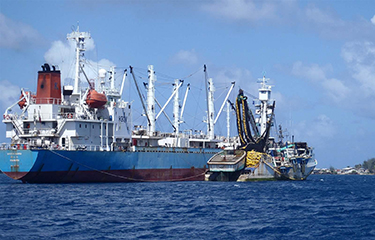The Western and Central Pacific Fisheries Commission (WCPFC) wrapped up its 19th regular session in Da Nang, Vietnam, on 3 December, 2022, with an agreement to adopt a management procedure (MP) for skipjack tuna, but watered down the action by making it non-binding.
While the skipjack stock managed by the WCPFC is currently deemed healthy, the Marine Stewardship Council and other conservation groups have been pushing for the adoption of an MP, also known as a harvest strategy, as important for ensuring the stock’s long-term sustainability.
An MP is a simulation-tested set of rules used to determine management actions, in which data, assessment methods, and harvest control rules for implementing management actions are pre-specified. Harvest control rules (HCRs) are pre-agreed guidelines that determine how much fishing can take place based on the targeted stock’s status. The benefit is that as the MP is pre-agreed, political negotiations cannot supersede the science-based recommendations.
The skipjack MP was made non-binding because the Parties to the Nauru Agreement (PNA) – eight island countries containing some of the world’s most-productive skipjack tuna fishing grounds –preferred to keep the ability to adjust harvest to give stability to its “vessel-day scheme” sales, an effort-based control, rather than the total allowable catch approach of the MP. The plan that was adopted was proposed by the PNA.
The Pew Charitable Trusts praised the WCPFC for joining other major tuna RFMOs in shifting toward modernized, science-based management. The Indian Ocean Tuna Commission (IOTC) adopted an MP for bigeye tuna in May 2022, and the International Commission for the Conservation of Atlantic Tunas (ICCAT), adopted one for Atlantic bluefin tuna in November 2022.
“By adopting a management procedure for skipjack tuna, the Western and Central Pacific Fisheries Commission has demonstrated a commitment to a sustainable future for this important species,” Glen Holmes, an officer with The Pew’s international fisheries project, said. “While it is a step in the right direction, it is disheartening that members have not made the agreement binding. This could render the management procedure ineffectual and allow protracted and potentially politicized negotiations that leave the long-term health of the species at risk to continue. To optimize management of this stock and ensure a stable supply for the market, members must revisit this decision and agree to realize the full benefit of the management procedure as soon as possible.”
The MSC, which had at one point threatened to revoke sustainability skipjack certifications in the region if an MP was not adopted, said it was satisfied by the WCPFC’s move to put harvest strategies in place for all tuna species before stocks fall below sustainable levels.
“The agreements reached in Da Nang will now be reviewed by the independent conformity assessment bodies (CABs) responsible for certifying 33 tuna fisheries in the WCPO to the MSC fisheries standard. Tuna fisheries which continue to meet the minimum requirements of MSC certification will have the opportunity to adopt the new version of the MSC Fisheries Standard early, giving them five years to meet new requirements for more comprehensive, state-of-the-art harvest strategies,” MSC Chief Science and Standards Officer Rohan Currey said.
Photo courtesy of The Pew Charitable Trusts







